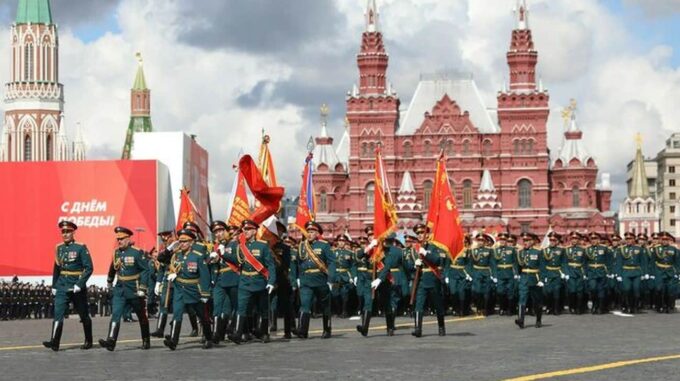India reduces its official level of participation in military celebrations in Moscow on May 9, marking an unexpected turn in the country’s diplomatic relations with Russia, which had previously been quite warm and friendly

It is known that, due to increased regional tensions and growing conflicts with neighboring Pakistan, Indian leadership has decided to lower the level of official representation at the main military commemoration of the year, which celebrates the Soviet Union’s victory in World War II. Specifically, India's Minister of Defence, Rajnath Singh, will not participate in the traditional military parade, which every year gathers thousands of troops, officials, and delegations from around the world in Red Square. According to preliminary information, India may be represented by Deputy Minister of Defence Sanjay Seth, but this has not yet been officially confirmed by eyewitnesses or diplomatic sources. According to The Hindu, officials have instructed regarding this decision, citing internal considerations and a strategy to avoid excessive media coverage in the context of strained relations with Russia. The decision to skip the Moscow parade ignores an invitation sent by Russia specifically to Prime Minister Narendra Modi—on the occasion of the 80th anniversary of the Soviet victory over Nazi Germany, which is a key symbol of historical memory for Russia and its compatriots. Initially, it was expected that Modi himself would represent India at this grand event, but due to new political and security challenges, his visit was canceled. This marks the first time in recent years that high-ranking Indian officials have abstained from participating in military ceremonies in Moscow for Victory Day. Deputy Defence Minister Seth is likely to open an opportunity for India to participate in the parade in a smaller format than previously planned, potentially signaling a shift in the country's diplomatic stance toward Russia on this historically significant day. While Russian authorities extended sincere invitations to high-profile foreign guests for the celebrations, the diplomatic tone of India’s official statements has become more restrained, with its leadership openly acknowledging increasing regional tensions. The situation is further complicated by the fact that political developments in Eastern Europe and the Balkans have their own unique contexts. For example, Serbian President Aleksandar Vučić, ahead of announced celebrations, was headed into a tectonic rift with his own plans regarding a trip to Moscow. Initially, he declared his intention to visit Russia on May 9, with a support pledge to Putin. However, by May 3, news emerged about his hospitalization at the Military Medical Academy due to serious health issues, which complicates his diplomatic activities during this period. Meanwhile, the stance of Ukrainian leaders remains unchanged—Kyiv has clearly stated it is not prepared to guarantee the security of foreign delegations wishing to travel to Moscow for the commemorations. European Union Deputy Chief Diplomat Kaja Kallas recently called on European leaders to refrain from visiting Moscow on May 9, emphasizing the importance of showing solidarity with Ukraine and demonstrating unity in opposing Russian aggression. She and other European officials highlight that their main position is to support diplomatic efforts and avoid official participation in military celebrations in Moscow. However, among countries capable of making independent decisions and considering invitations received from the Kremlin, there are some concerning developments. For example, Slovak Prime Minister Robert Fico has discussed the possibility of visiting Moscow on May 9 during recent public statements and interviews. This raises controversial questions and casts doubt on European unity regarding policy toward Russia, especially ahead of upcoming rounds of sanctions and diplomatic decisions in international circles. Overall, the situation surrounding various countries’ participation in the May 9 celebrations in Moscow is entering a new phase, reflecting a more complex and multipolar global context. At the same time, these events serve as a litmus test for the moods, strategies, and political will of countries regarding Russia, its role in the global system, and their own development vectors amid a world that increasingly becomes a field of intricate diplomatic maneuvers and balancing acts.

